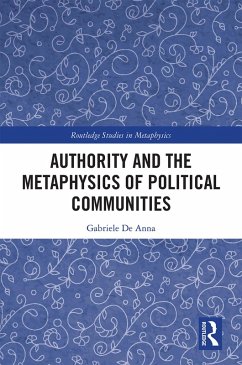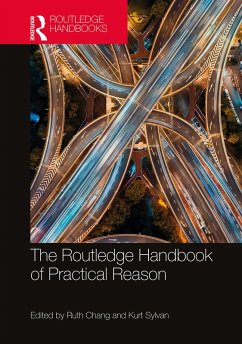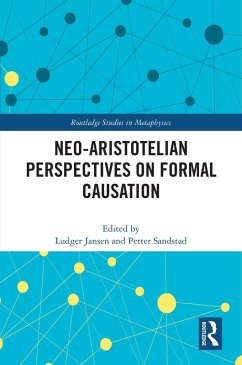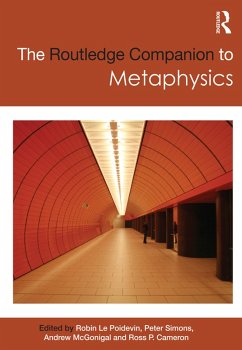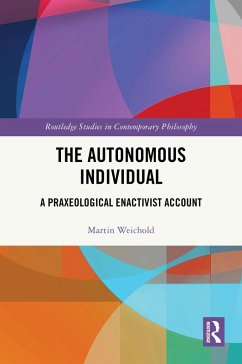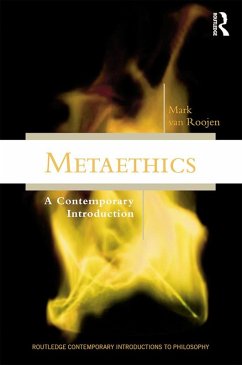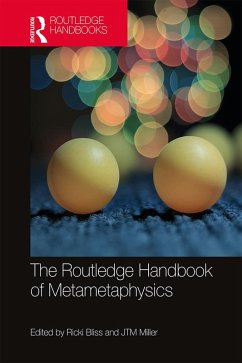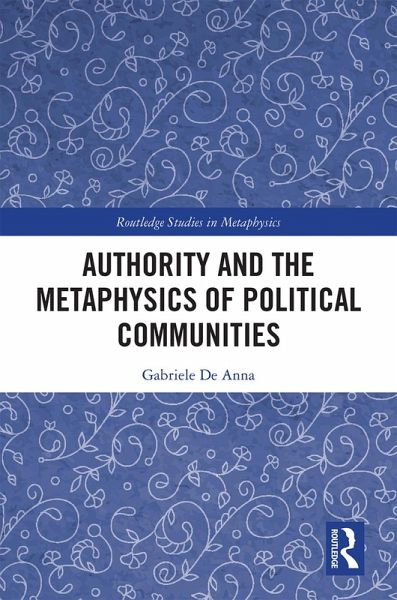
Authority and the Metaphysics of Political Communities (eBook, PDF)
Versandkostenfrei!
Sofort per Download lieferbar
42,95 €
inkl. MwSt.
Weitere Ausgaben:

PAYBACK Punkte
21 °P sammeln!
This book explores the metaphysics of political communities. It discusses how and why a plurality of individuals becomes a political unity, what principles or forces keep that unity together, and what threats that unity can be faced with.In Part I, the author justifies the need for the notion of substance in metaphysics in general and in the metaphysics of politics in particular. He spells out a moderately realist theory of substances and of their principles of unity, which supports substantial gradualism. Part II concerns action theory and the nature of practical reason. The author claims tha...
This book explores the metaphysics of political communities. It discusses how and why a plurality of individuals becomes a political unity, what principles or forces keep that unity together, and what threats that unity can be faced with.
In Part I, the author justifies the need for the notion of substance in metaphysics in general and in the metaphysics of politics in particular. He spells out a moderately realist theory of substances and of their principles of unity, which supports substantial gradualism. Part II concerns action theory and the nature of practical reason. The author claims that the acknowledgement of reasons by agents is constitutive of action and that normativity depends on the role of the good in the formation of reasons. Finally, in Part III the author addresses the notion of political community. He claims that the principle of unity of a political community is its authority to give members of the community moral reasons for action. This suggests a middle way between liberal individualism and organicism, and the author demonstrates the significance of this view by discussing current political issues such as the role of religion in the public sphere and the political significance of cultural identity.
Authority and the Metaphysics of Political Communities will be of interest to researchers and advanced students working in social metaphysics, political philosophy, philosophy of action, and philosophy of the social sciences.
In Part I, the author justifies the need for the notion of substance in metaphysics in general and in the metaphysics of politics in particular. He spells out a moderately realist theory of substances and of their principles of unity, which supports substantial gradualism. Part II concerns action theory and the nature of practical reason. The author claims that the acknowledgement of reasons by agents is constitutive of action and that normativity depends on the role of the good in the formation of reasons. Finally, in Part III the author addresses the notion of political community. He claims that the principle of unity of a political community is its authority to give members of the community moral reasons for action. This suggests a middle way between liberal individualism and organicism, and the author demonstrates the significance of this view by discussing current political issues such as the role of religion in the public sphere and the political significance of cultural identity.
Authority and the Metaphysics of Political Communities will be of interest to researchers and advanced students working in social metaphysics, political philosophy, philosophy of action, and philosophy of the social sciences.
Dieser Download kann aus rechtlichen Gründen nur mit Rechnungsadresse in A, B, BG, CY, CZ, D, DK, EW, E, FIN, F, GR, HR, H, IRL, I, LT, L, LR, M, NL, PL, P, R, S, SLO, SK ausgeliefert werden.




